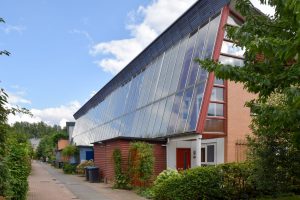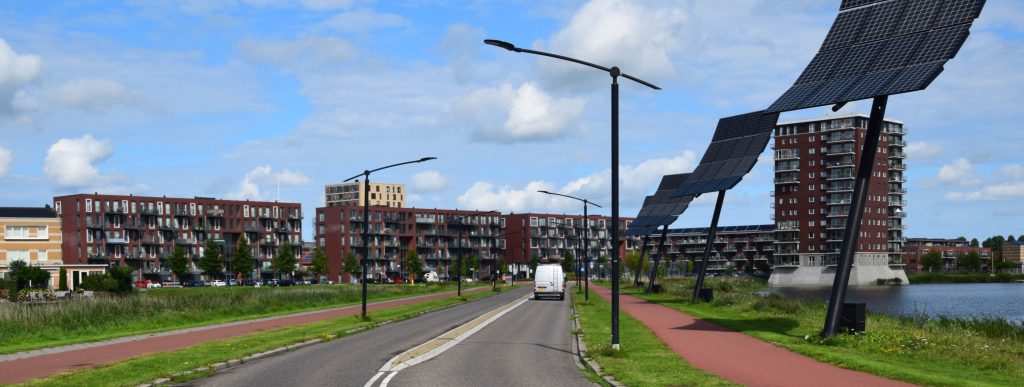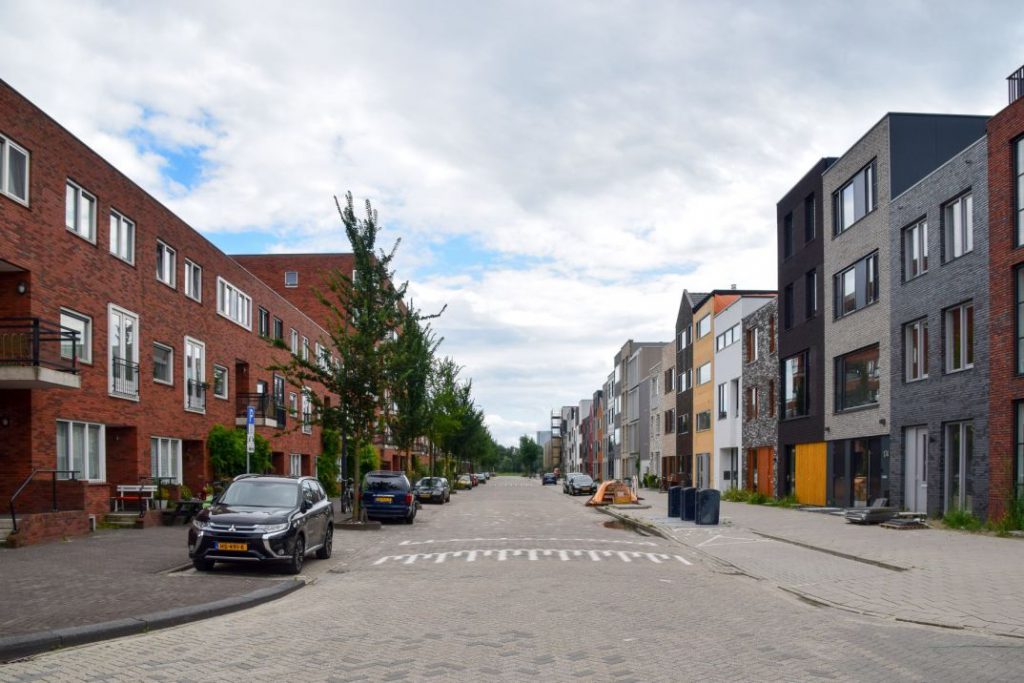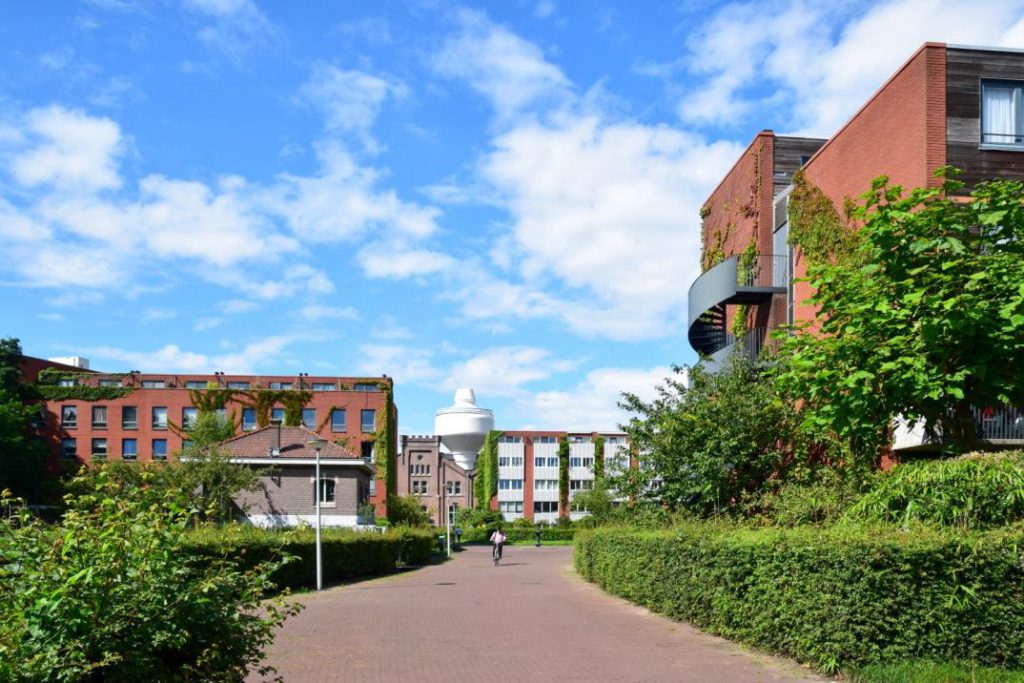June 20 is the beginning of summer and in many places drought and low water levels in the rivers are already the order of the day, the waters in Germany are not equipped against the effects of climate change. In view of the devastating conditions of many waters in Germany, BUND demands a paradigm shift in the way we deal with our waters: The overriding principle in times of climate change must be to keep water in the landscape and return streams and rivers to their natural dynamics within their floodplains. Only just under eight percent of rivers and streams in Germany achieve the good ecological status required by the European Water Framework Directive. Almost 40 percent of surface waters across Europe are polluted by a variety of stressors such as climate change, nutrient inputs from agriculture or straightening. "We continue to heat up the earth, at the same time we drain the landscape. That's why it's no surprise that our local waters are doing so badly," stresses Olaf Bandt, Chairman of BUND, referring to a recent evaluation by BUND on the effects of climate change on water bodies.
If moors and floodplains are drained, not only does the landscape increasingly dry out, but huge quantities of greenhouse gases such as CO2 and methane are released, which in turn fuel global warming. If the air temperature rises and with it the water temperature, more and more naturally occurring methane escapes from bodies of water. Bandt: "Methane is a greenhouse gas that is 25 times more effective than CO2 and further exacerbates climate change."
The temperature trend in recent years has been dramatic for nature. The years 2014, 2018 and 2019 were the three warmest years since weather records began, affecting water bodies as well as forests, animals and agriculture. Bandt: "Falling groundwater levels and rising water temperatures have fatal consequences for people and the environment. Last year's fish kill will not be the last. It is therefore crucial that we take decisive action to tackle the climate crisis. The German government must do everything it can to achieve the goal it has set itself of limiting global warming to a maximum of 1.5 degrees." In times of climate crisis and species extinction, rivers, streams, ponds and lakes must be able to cope well with the heat and drought, and landscapes that can temporarily store water are needed. The nature conservation organisation believes that this can only be achieved if water protection is taken into account in all policy areas. With regard to the impact of industrial agriculture on water bodies and the Agriculture Commission, Bandt adds: "I expect Federal Minister of Agriculture Julia Klöckner to shape the future of food production and not prevent another environmentally friendly reorganisation of German agriculture. The same applies to Federal Minister Andreas Scheuer, who must finally stop seeing rivers as wet motorways and actively support their role in securing groundwater for us all."
It is long overdue for the German government to fulfil its obligations under the European Water Framework Directive. This includes improved water management, demands Lilian Neuer, BUND water expert and co-author of the paper: "The landscape must not be drained further and further with drainage systems, even sealed surfaces in the city only drain rainwater into the sewerage system. However, water must remain in the area in order to be available where it is needed in dry and hot times. There are still water reserves, but we are in the middle of a climate crisis - and we need to act now."
Over the past centuries, numerous rivers have been straightened and floodplains, swamps and bogs have been drained. What remains is a dried-up landscape that is unable to retain rainwater, further favouring falling groundwater levels. "Healthy bodies of water are more resilient and can cope better with the negative consequences of the climate crisis," explains Neuer. "Where possible, floodplains must be renaturalised, because only near-natural, living floodplains absorb water like a sponge during periods of flooding and slowly return it to the river when water levels are lower. In this way, the water flow can be improved at times when there is less water available."
BUND is calling for the implementation of the European Water Framework Directive and a sustainable solution to the water crisis:
-
- Give rivers more space instead of damming them, as this is the only way to reconnect floodplains and rivers and strengthen biodiversity. Floodplains must be renaturalised.
- Keep water in the landscape instead of draining it directly so that the groundwater reservoirs can be replenished.
- Stop surface sealing, because especially in cities, water is drained away as quickly as possible and cannot seep away.
- Dismantling of transverse structures, as damming rivers heats up the water, worsens the water quality and blocks the path of fish so that they can no longer reach their spawning grounds.
- To protect groundwater and drinking water, the precautionary and polluter-pays principles must be implemented, as water quality can only be improved if proactive action is taken. Water bodies must be protected from the input of nutrients and pollutants.
- Water utilisation conflicts must be resolved fairly and sustainably.
- Instead of further widening and deepening rivers for ever larger ships, the ships must be adapted to the rivers. It must be reviewed on which rivers shipping still makes sense at all under changing climatic conditions.
- Sustainable water management is also necessary in agriculture, which includes, for example, soil-conserving cultivation, the removal of drainage systems and the cultivation of site-adapted crops. EU agricultural policy must be adapted to the challenges posed by climate change.
More information
Keywords:
Greening / climate adaptation, DE-News, Climate protection, New books and studies, Environmental policy, Water
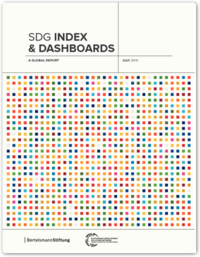 According to a new study, the world is still a long way from achieving the United Nations' Sustainable Development Goals. Sweden is in the best position, according to the report published by the Bertelsmann Stiftung and others. The study compared 149 countries. Sweden is closest to the goals, followed by Denmark and Norway. Germany came in sixth place. The UN Sustainable Development Goals are intended to help combat extreme poverty, climate change and discrimination by 2030.
According to a new study, the world is still a long way from achieving the United Nations' Sustainable Development Goals. Sweden is in the best position, according to the report published by the Bertelsmann Stiftung and others. The study compared 149 countries. Sweden is closest to the goals, followed by Denmark and Norway. Germany came in sixth place. The UN Sustainable Development Goals are intended to help combat extreme poverty, climate change and discrimination by 2030.

